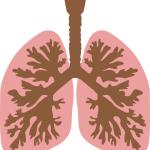Why do people continue to smoke? Why do we seem to reach a point where education and taxation have not continued to reduce the numbers of people that begin smoking?
smoking
Smoking can be thought of as a pediatric disease.
We always knew when our PhD advisor was applying for a grant. He would pace the hallways, then go outside and smoke. A lot. (Thankfully, he's quit since then.)
Not that long ago, if a company had invented a far safer way to deliver nicotine to addicted smokers, politicians would be celebrating. Smoking is one of the leading preventable causes of disease and death in the world.
Through education and taxation, the struggle to end tobacco smoking has made tremendous gains over the last fifty years; some believe that we are entering the final phase of stopping the plague.
There's no doubt about it. E-cigarettes have the potential to save millions of lives.
We often tend to think of rural environments as being less polluted than our cities — fewer cars, less air pollution, etc. Thus we might expect folks living in rural areas to have fewer lung-related ailments.
Last week, international media outlets reported that asparagus causes cancer. It does not.
My wife and I travel frequently from our home in Seattle to Europe to visit her parents. I've been across the pond 20 times, and I've visited 18 countries there.












